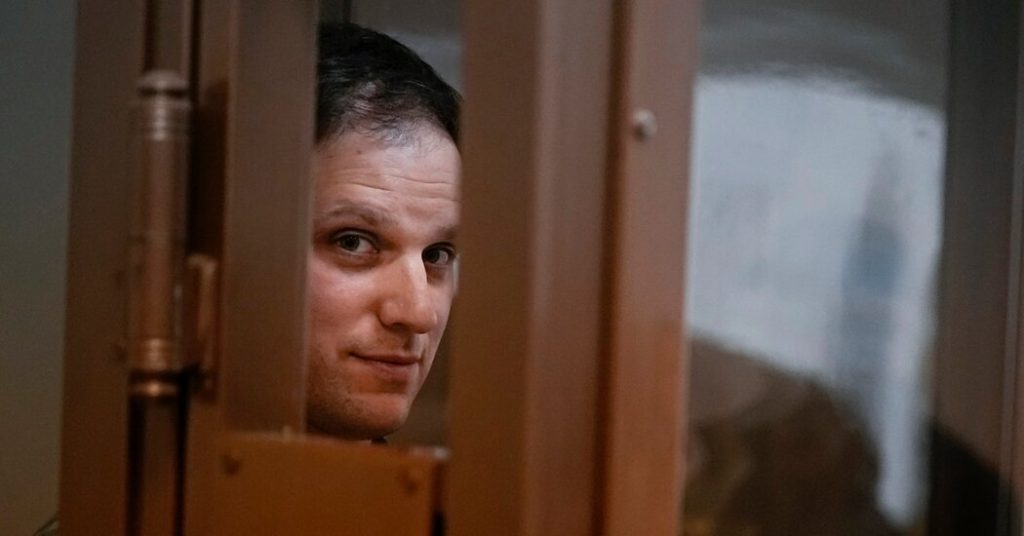A year ago, Evan Gershkovich, a foreign correspondent for The Wall Street Journal, was detained in Russia on espionage charges, making him the first American reporter to face such accusations since the Cold War. Despite denials from both The Journal and the U.S. government, Gershkovich remains in the notorious Lefortovo prison in Moscow. Efforts to secure his release, as well as that of another detained American, Paul Whelan, have been ongoing. Recent public comments from Russian President Vladimir V. Putin about a possible prisoner swap have brought some hope for Gershkovich’s situation, but complications have arisen, especially after the death of opposition leader Aleksei A. Navalny.
While in prison, Gershkovich remains resilient, engaging in activities like chess, reading, and letter writing to maintain his spirits. His friends have set up a website for people to send him letters of support from around the world. Gershkovich, who grew up in New Jersey, studied philosophy and English at Bowdoin College before pursuing a career in journalism. He worked for The Moscow Times and Agence France-Presse before joining The Wall Street Journal in 2022, a job he loved and took pride in. The Journal continues to highlight his case, keeping the pressure on to secure his release.
Gershkovich’s arrest marked a troubling turn in Russia’s crackdown on independent media and dissent, as he was the first Western journalist to be jailed in the country under such charges. This has had repercussions for coverage of Russia, with many newsrooms reevaluating the risks for their reporters in the region. The arrest of another journalist, Alsu Kurmasheva, further highlights the dangers faced by journalists in Russia. Gulnoza Said of the Committee to Protect Journalists notes that journalists are under constant risk in the country, as the authorities suppress independent media.
Gershkovich’s parents have been tirelessly advocating for his release, meeting with top U.S. officials to keep his case a priority. They continue to hope for a resolution soon, as a trial date is expected to be set in the coming months. The trial, which will be held behind closed doors, raises concerns about transparency in the process. Despite the challenges, Gershkovich’s parents remain optimistic, relying on their hope and support systems to cope with the situation. President Biden and his administration are committed to bringing Gershkovich home, but the complexities of the situation make it a challenging process.
The ongoing efforts to secure Gershkovich’s release involve diplomatic negotiations and potential prisoner swaps, with discussions surrounding high-profile Russians in U.S. custody complicating the situation. The uncertainty of the process adds to the anxiety of Gershkovich’s loved ones and supporters, who are eagerly awaiting a positive outcome. As the case continues to unfold, the focus remains on bringing Gershkovich home safely and swiftly, underscoring the importance of press freedom and the protection of journalists working in challenging environments.













